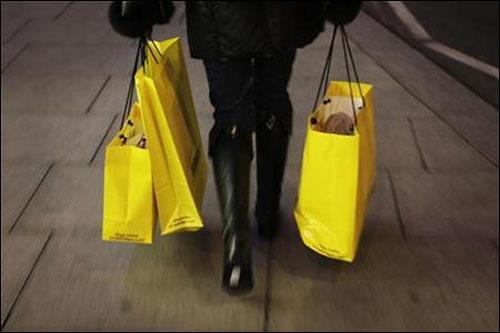 | « Back to article | Print this article |
Foreign retailers may wait till 2014 for India action
If the retail sector rulebook was changed in 2012, it's only in 2013 that international chains and other foreign investors will get down to action. Apart from the slowdown in international economies, another reason that could keep retail groups cautious is the general election scheduled for 2014.
Although foreign direct investment (FDI) in multi-brand retailing has been permitted - subject to final approval by state governments - many companies may want to wait and watch till the 2014 poll results are announced.
Jaideep Wahi, director, retail agency, Cushman and Wakefield India, says multi-brand retail chains are expected to focus on deliberation and research during 2013. However, there would be action in the single brand retail turf through the year, according to Wahi.
The government approval to the Swedish furniture group IKEA to set up stores in India would be the starting point. The move is likely to kick off entry of many more international players in single brand retail, an industry source says.
Even as the Foreign Investment Promotion Board (FIPB) struck off half the product categories, including cafes/restaurants that the Swedish chain wanted to bring to India, a review is round the corner, possibly making IKEA a reality in India.
H&M Hennes and Mauritz AB are among the big players wanting to enter the market, pegged currently at $500 billion (Rs 27.5 lakh crore). Though 100 per cent FDI is allowed in single brand retail, H&M may opt for the franchisee route in 2013.
Spain's Inditex SA, whose proposal to roll out its Massimo Dutti stores in India got rejected earlier this year, is expected to present a restructured application in the coming year. Zara, from the same group, is already present in India.
In multi-brand retail, as Anshuman Magazine, chairman and managing director of CB Richard Ellis South Asia, put it, allowing 51 per cent FDI in the sector would encourage international chains to look at India as a destination to set up their operations, but "all of this is not going to happen overnight."
Even as international biggies such as Walmart, Carrefour and Tesco are already in India in the cash-and-carry or wholesale format, they are yet to formalise plans for front-end multi-brand retail. Though the Opposition vote against retail FDI was defeated in Parliament, big retail groups continue to be worried about political resistance.
The world's largest retailer, Walmart, in a 50-50 joint venture (JV) with Bharti Enterprises for cash-and-carry business in the country, is going slow on its India plan due to an ongoing investigation by the Enforcement Directorate. It recently launched a probe into possible corruption in the India operation.
In an interview in September, Raj Jain, Walmart India president, had said, "Walmart is able and willing to invest in India, whatever it takes to grow a business. We know it's not a short-term investment — it's a marathon and will take time for these investments to monetise."
French retailer Carrefour, which is on its own in India for cash-and-carry business, is cautious, too, due to economic conditions back home, as well as political resistance in India. The UK's Tesco, which had recently expressed concern over the sourcing norms in multi-brand retail, has been optimistic since the Parliament go-ahead.
Tesco's chief executive Philip Clarke made a quiet visit to India and met top Tata executives to discuss its retail plans. Tesco is in a JV with Tata's Trent. Through 2013, both Carrefour and Tesco are expected to make some move.
Germany's Metro AG, present in India for around 10 years, has said it will continue with cash-and-carry.
Of those who have no presence in India yet, Japan's Uniqlo, specialising in clothes and accessories, is learnt to be keen on India and may make some moves in the year to come, pointed out experts.
One or two big-size players, who are not in India in any format, are expected to announce their entry into multi-brand retail over the next 12 months, said Arvind Singhal, chairman and founder of Technopak Advisors, a retail consultancy. As for the existing players, Singhal said: "Retail is about opening store by store, not so much about multi-billion investment."
The next 12 months may usher in a large number of shopping centres, malls and entertainment space. While new retail brands would like to begin with the top eight cities of the country, those who are already present may expand across 10-15 cities, including tier 2 cities, said Wahi of Cushman and Wakefield.
Also, the preference may be for the franchisee and JV route, even if 100 per cent FDI is permitted in formats like single brand retail, Wahi added. IKEA is an exception.
On the whole, 2012 was about getting the retail business right in India, rather than growth, according to Technopak Advisors' Singhal, who cited examples such as the Future group and the Aditya Birla group. In 2013, retail chains are expected to focus on growth with caution.

